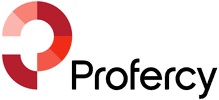Leading nitrogen fertilizer producer Fertiglobe has revealed that it used recent downtime at Egyptian plants exacerbated by the Israel-Iran conflict to perform critical maintenance and defer extensive turnarounds.
Those actions have reduced its expected capex for 2025 to the lower end of its previous guidance of $145–170 million, the Abu Dhabi-headquartered major revealed in notes accompanying its Q2 results.
For the first half of the year, Fertiglobe’s total overall own-produced sales volumes were down 1% from last year to 2.79m. tonnes.
Urea sales were 4% lower in H1 2025 than in the year-ago period, with 2.11m. tonnes sold compared to 2.2m. tonnes in H1 2024, while ammonia own-produced sales volumes were 677,000t in H1 2025 compared to 613,000t in H1 2024, an increase of 10%.
Fertiglobe CEO, Ahmed El-Hoshy, said: “This quarter demonstrated Fertiglobe’s growing operational resilience, with an adjusted EBITDA increase of 26% year-on-year [to $176 million].
“We capitalised on the downtime in Egypt to perform critical maintenance activities, successfully extending the turnaround cycle, with maintenance capex expected towards the lower end of our previous guidance at $145 million.
“Notably, excluding external factors and turnarounds, our own-produced sales volumes for the second quarter of 2025 would have been up 4% year-on-year while H1 2025 own-produced sales volumes would have increased 7% year-on-year.
“Fertiglobe is poised to capitalise on the recent recovery in urea prices, which are approximately 20% above Q2 2025 levels.”
New ammonia capacity to debut in 2027
Looking to its projects pipeline, Fertiglobe added that while its 1m. tonne/year blue ammonia plant in the UAE known as Project Harvest remains on track for launch in 2027, its similar-sized Project Rabdan in the country has been “rephased”.
The firm said that while it “remains dedicated to advancing its low-carbon project portfolio, [it] recognises that the global low-carbon ammonia market remains in the early stages of development, with regulatory frameworks and demand signals continuing to evolve”.
“As such […] Fertiglobe has taken the decision to rephase Project Rabdan, [which] reflects the company’s prudent investment strategy and commitment to timing capital allocation effectively and is consistent with the broader objectives of the Grow 2030 Strategy, particularly its focus on disciplined low-carbon growth.”
In an update on Project Harvest, Fertiglobe noted that construction has been underway since Q3 2024, with phase one of the plant aiming to produce 50% lower-carbon intensity ammonia versus conventional ammonia.
Last year, Fertiglobe inked a deal with Mitsui that will see the Japanese trader “offtake a certain volume of the clean ammonia […] for supplying Japan and other Asian markets” for use “in fuel applications, chemical and fertilizer feedstock applications, and other industries”.
Turning its attention to parent Adnoc’s low-carbon hydrogen and ammonia joint venture project in Texas, Fertiglobe added it “is carefully evaluating the attractiveness, offtaking opportunity, structure and derisking potential of the project”.
Final investment decision (FID) on the 1m. tonne/year Baytown project – which would feature 98% carbon capture technology – is expected later this year but is “contingent on supportive government policy and necessary regulatory permits”.
That timeline for FID is also similar to one for its plans for a 100 MW electrolyser facility in Egypt to produce renewable hydrogen as feedstock for the production of around 74,000t per year of green ammonia at Fertiglobe’s existing ammonia facilities in Ain Sokhna.
By Robert Prendergast, Nitrogen Market Reporter



